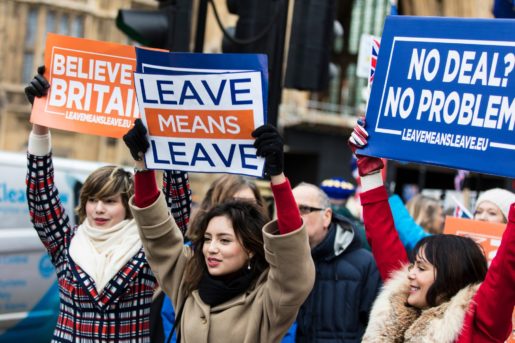The governor of the former Bank of England, Mervyn King, cautions that we are on the verge of a financial and economic crash. He warns of a crisis possible to bring about consequences that will ravage the democratic market systems. Heeding his warning is critical. During the 2008-2009 period, Lord King was the supervisor at Threadneedle Street during the economic downfall. He believes defiance towards forward-thinking and innovative ideas can lead us all, not only the UK economy, into another global banking near-death encounter that occurred a decade ago.
On Wednesday, Lord King gave a lecture at the IMF’s annual assembly. He discussed that since the crisis in 2008, there has been an aversion to questioning the foundation of practices and ideologies that led to an economic disaster. Another critical financial debacle would break the validity of the democratic market system we know today. The forecast presented demonstrates that we are blindly walking towards a catastrophe. Our economic leaders are ignoring the reality that our current banking system has not been fortified since our last collapse. It is extremely deceptive to depend on our current financial infrastructure.
Lord King Urges the Resolve of Brexit
Moreover, he continues by urging Britain to leave the EU. He shares that Britain’s departure from the European Union is exaggerated and prolonged. He stated that Britain is focusing too much on its departure. Leading to the neglect of serious underlying issues the UK economy is facing. Additionally, he mentions that Brexit is taking the main stage while urgent issues that are plaguing the global economy are being brushed under the rug. While Brexit is significant to the UK, Lord King does not think that it will have a serious impact on the remainder of Europe or the world.
However, he does mention other rising issues. The UK is facing deeper problems such as lack of infrastructure investments, pensions, and its overall low savings rate. Unfortunately, this means that there are not enough finances to invest in the future. Sponsoring infrastructure or even pensions to protect the elderly proves to be difficult. Britain also faces difficulty with its halved university graduation rates. These big challenges are neglected due to the serious focus on Brexit.

What do Economists Think About This?
Anticipation stirred that the Sterling drops, erasing the gains that brought to almost $1.30 over the last week. But, Investec chief economist, Philip Shaw, does not agree with this expectation. The probability of the pound dropping to $1.20 is unlikely because this was improbable even in August during the possibility of a no-deal. Jefferies’ Chief European Economist, David Owens stated that the market mobilized for the Sterling to the level that it did despite the events taking place. However, following Johnson’s and the UK Parliament’s recent meeting, we will see what changes take place. He responded to Lord King’s opinion and shared that Brexit is a procedure. Those who believe its resolution should have already happened do not grasp the process.
Unfortunately, no one really knows what will happen to the UK economy, nor how it will impact the rest of the world. But let us hope to move onwards and upwards.
















